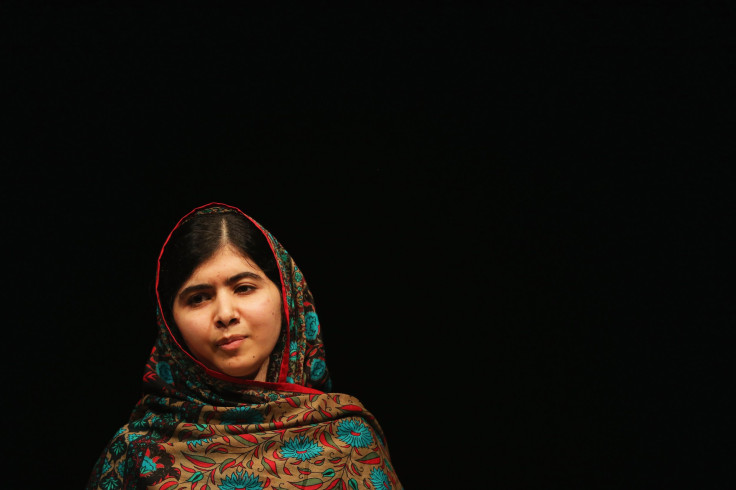Malala Yousafzai On Her Nobel Peace Prize Win: 'We Should All Fight For Our Rights'

Malala Yousafzai said in a televised speech Friday that the announcement that she was one of two people awarded the 2014 Nobel Peace Prize encourages her to continue her fight to empower children and women around the world. The prize was awarded to Yousafzai -- who is known around the world as simply Malala -- and fellow children's rights advocate Kailash Satyarthi.
"We should all fight for our rights, for the rights of children, for the rights of women and the rights of every human being," said Yousafzai, at 17 the youngest person ever to receive the prize. "This is not the end of this campaign; this is only the beginning. I want to see every child going to school."
Yousafzai, a 17-year-old Pakistani schoolgirl, said in her remarks that she wants to become a politician in the future, which would see her following the path of one of her heroes, former Pakistani Prime Minister Benazir Bhutto, who was assassinated in a December 2007 bombing.
The fact that Satyarthi, a tireless advocate for the end of child slavery, is from India, while Yousafzai is from Pakistan, was a major focus of Malala's speech. The countries have a long history of tension, and she was inspired by the fact that they were awarded the prize together to speak about the importance of the two countries "being able to have peace" in the future.
"I'm proud that I'm the first Pakistani and the first young woman or the first young person that is getting this award. It is a great honor to me.... It gives a message to people of love between Pakistan and India," she said.
In July 2013, when Yousafzai (whose name is also sometimes spelled Yousafzay or Yousufzai) was just 16, the Pakistani schoolgirl transfixed the world by delivering a moving speech at the United Nations, speaking out against the Taliban and other extremists. Her remarks came less than a year after she was shot in the head by a Taliban militant in a vicious attack on her and a group of friends.
"We call upon all governments to ensure free, compulsory education all over the world for every child," she said in the iconic speech. "We call upon all the governments to fight against terrorism and violence to protect children from brutality and harm. We call upon the developed nations to support the expansion of education opportunities for girls in the developing world."
The 2014 Nobel Peace Prize will be awarded to Yousafzai and Satyarthi at a ceremony in December.
"The Norwegian Nobel Committee has decided that the Nobel Peace Prize for 2014 is to be awarded to Kailash Satyarthi and Malala Yousafzai for their struggle against the suppression of children and young people and for the right of all children to education," a statement announcing the pair as the winners reads. "Children must go to school and not be financially exploited. In the poor countries of the world, 60% of the present population is under 25 years of age."
© Copyright IBTimes 2025. All rights reserved.





















